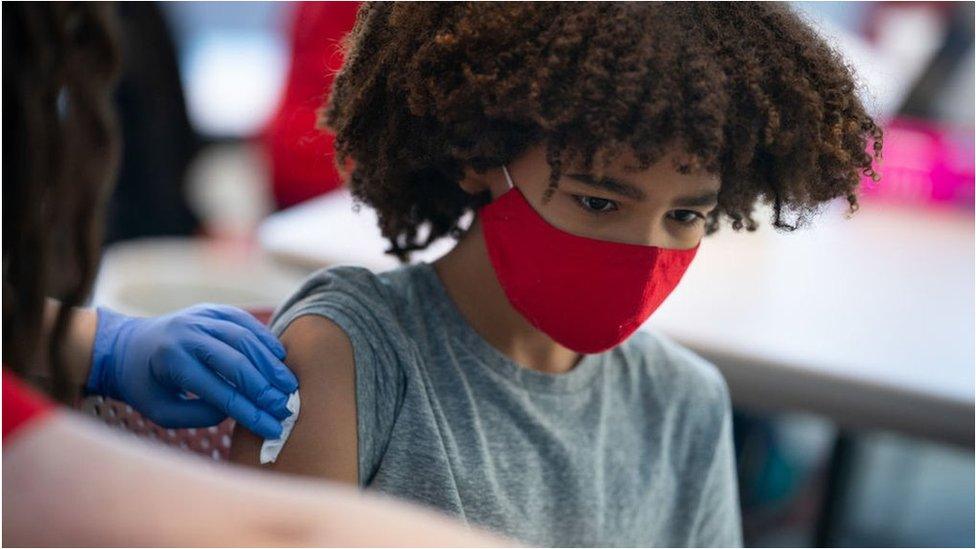Covid-19: Decision on jabs for children due in days
- Published
Prof Anthony Harnden, deputy chairman of the JVCI, says there "isn't a right or wrong answer"
The government believes there is a "strong case" for offering Covid jabs to healthy 12-15 year-olds, a source has told the BBC, as it awaits advice from the UK's chief medical officers.
On Friday vaccine experts did not recommend a rollout as the benefits on health grounds alone were "marginal".
They have now asked the chief medical officers to consider the wider implications of extending vaccinations to younger pupils.
A decision is expected within days.
Government sources believe vaccinating younger children could reduce disruption in schools and help keep infection rates down as winter approaches.
Up until now the advice of the Joint Committee on Vaccination and Immunisation (JCVI) with regards which groups should get the Covid jab has been followed across the UK.
On Friday the JCVI recommended widening the existing vaccine programme, external to include an extra 200,000 12-15 year-olds with specific underlying conditions.
But they stopped short of advising in favour of vaccinating healthy children in that age group, saying "the margin of benefit is considered too small to support universal vaccination... at this time".
Prof Anthony Harnden, the JCVI's deputy chairman, was asked on BBC Breakfast about the potential now for parents to soon be faced with having to make a decision on whether or not to have their child vaccinated when different experts had offered varying opinions.
He replied that past decisions on widening the rollout had been "fairly clear cut" but for this age group for healthy children there was not a "right or wrong".
Prof Harnden added: "We have done our job. We have looked at the data, we have resisted a lot of pressure in terms of people making pronouncements - but we have actually coldly looked at the data."
Should the jab rollout be extended, he said "parents need to understand what the risks are, what the benefits are and make up their own mind about whether they offer consent or not... vaccinating 12-15 year-olds is not a black and white decision".
Health Secretary Sajid Javid has asked the chief medical officers to consider the rollout of the vaccine to the new age group "from a broader perspective".
This means the rate of transmission will also be a key consideration for the four chief medical officers.
Labour said there was a "strong case for vaccination to prevent further disruption to children's learning" and the government must "move urgently to make a decision" once the chief medical officers have given their advice.


Ministers have let it be known they are keen on getting this age group vaccinated - both through public pronouncements and privately behind the scenes.
The argument is that it could reduce school disruption and keep infection levels low.
But there's still plenty to consider. Giving this age group jabs would mean time out of class and possibly off school recovering from common side effects such as a mild fever.
This is not like the flu jab, which is a simple nasal spray.
Its ability to curb spread may be less than first assumed too. It is thought about half of this age group may have been infected already and therefore have natural immunity.
The emergence of the Delta variant also means the vaccine is less effective at stopping infection than previously - its main benefit is to prevent serious disease and as these healthy children are at incredibly low risk of that the benefits, as the JCVI points out, are marginal.
It is worth remembering that there are six million adults - twice the number in this age group - who still remain completely unvaccinated.
Perhaps there's a disproportionate amount of attention given to children?

Prof Jason Leitch, Scotland's national clinical director, told the BBC the chief medical officers have been asked for "advice in the round - not just about the individual risk per kid, but also look at the educational environment, the time off school, the safety of schools".
In Scotland, pupils started returning to the classroom from 11 August.
However, cases doubled in a week, with the surge blamed partly on the return of schools after the holidays.
And last year, the surge that led to England's second nationwide lockdown gathered pace in September as firstly schools and secondly universities reopened.
"My parents won't let me get the Covid vaccine"
The government has maintained throughout the pandemic that it will follow the advice of scientists.
While scientists on the JCVI make recommendations, the chief medical officers directly have the ear of ministers.
Prof Chris Whitty is England's chief medical officer, with Dr Frank Atherton, Dr Gregor Smith and Dr Michael McBride holding the roles in Wales, Scotland and Northern Ireland respectively.

What do parents think about vaccinating children?
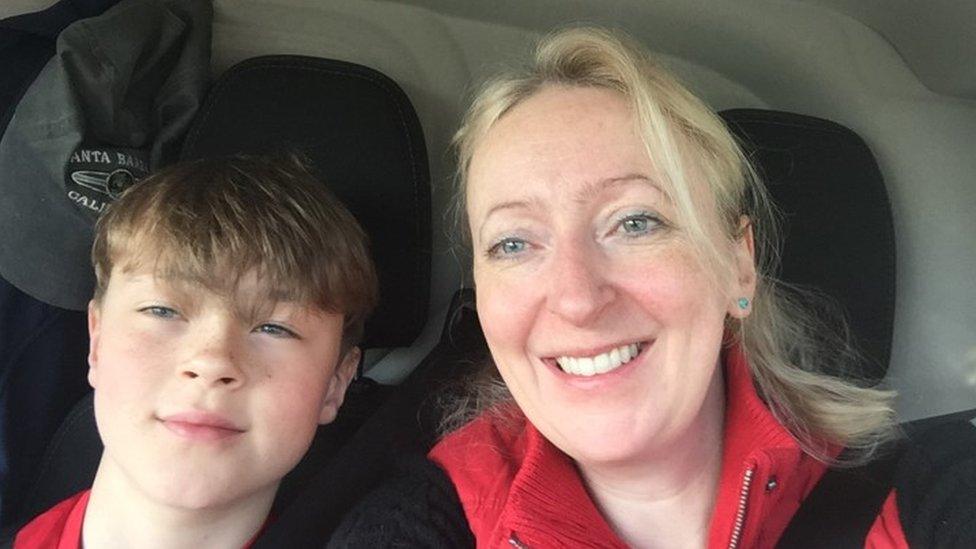
Sandra Charleton said her son Charlie had recovered from Covid but she could not be sure he would not have side effects from a vaccine
Sandra Carleton said she did not want her 12 year-old son Charlie to have the vaccine.
"He has just recovered from Covid so giving him the vaccine most certainly poses more of a risk than a benefit," she said.
"He is fine following Covid but I am not so sure he would have been after the vaccine."
Meanwhile, Sue in Yorkshire says she wanted her children, aged 12 and 13, to have the jab "as soon as possible".
"The JCVI is unusually cautious about a vaccine and yet completely incautious about this virus and its impact on children."

Geoff Barton, general secretary of the Association of School and College Leaders, told BBC Radio 4's Today programme: "If the guidance is this will reduce the disruption for all those young people, yes, we will absolutely back that.
"We have to look at the broader picture… In England. specifically, where we have got so few measures now, this is going to be one of the most reassuring ways of telling those 12 to 15 year olds... that is going to minimise the disruption for you."
The new JCVI advice recommends widening the rollout to children with chronic heart, lung and liver conditions who were at much higher risk of Covid than healthy children.
The decision not to recommend the vaccine to all healthy children was partly based on concern over an extremely rare side effect of the Pfizer and Moderna vaccines that causes heart inflammation, and can lead to palpitations and chest pain.
Data from the US, where millions of young teenagers have been vaccinated, suggested there have been 60 cases of the heart condition for every million second doses given to 12 to 17-year-old boys (compared to eight in one million girls).
France, Italy, Israel and Ireland have also been offering the vaccine to all children in this age group.
But as children are at such low risk from the virus, the JCVI decided vaccination would offer only "marginal gain" and, therefore, there was "insufficient" evidence to offer mass vaccination to this age group.
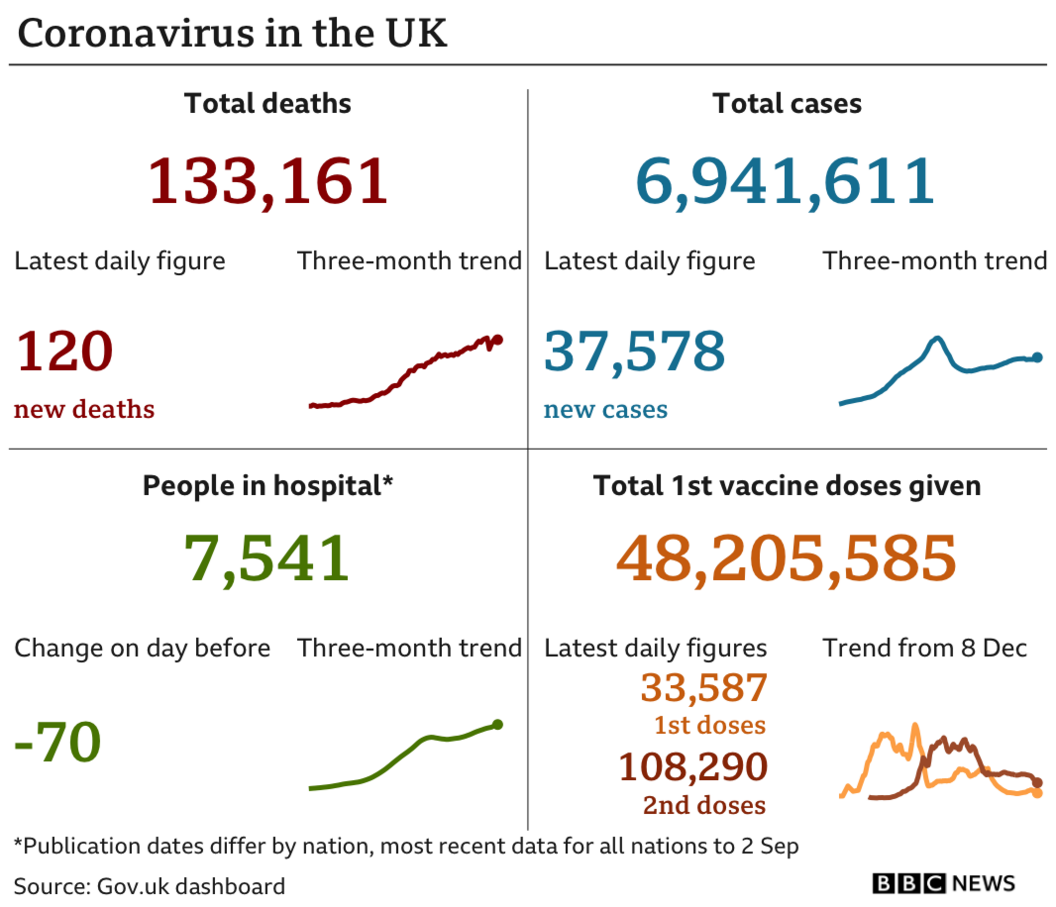

The JCVI said it was difficult to factor in long Covid in its advice because of the uncertainty over how common it was in children, although it appeared to be less prevalent than in adults.
Paediatricians say healthy children with Covid end up in intensive care at a rate of two in one million, but this rises to 100 in one million for children with certain health problems.
On Saturday, 37,578 cases of coronavirus were reported in the UK, external and 120 deaths within 28 days of a positive test.

As a parent, how do you feel about your 12-15 year-old being vaccinated? Share your thoughts by emailing haveyoursay@bbc.co.uk, external.
Please include a contact number if you are willing to speak to a BBC journalist. You can also get in touch in the following ways:
WhatsApp: +44 7756 165803
Tweet: @BBC_HaveYourSay, external
Please read our terms & conditions and privacy policy
If you are reading this page and can't see the form you will need to visit the mobile version of the BBC website to submit your question or comment or you can email us at HaveYourSay@bbc.co.uk, external. Please include your name, age and location with any submission.


"THIS IS THE WORST INTERVIEW I EVER DID": Looking back at when Ruby Wax met Donald Trump
THE DEEPER YOU GO, THE DARKER IT GETS: Brand new thriller Vigil starring Suranne Jones

Related topics
- Published23 February 2022

- Published2 September 2021
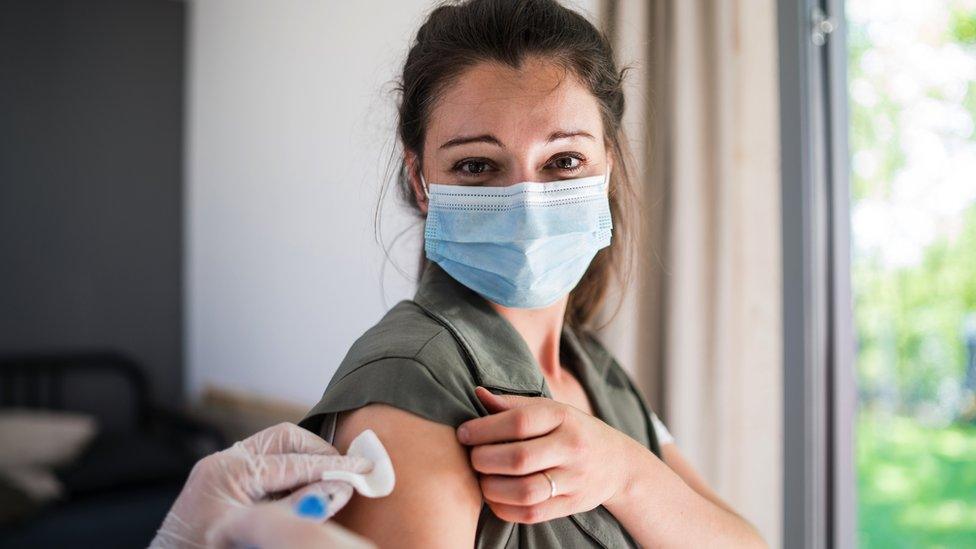
- Published1 September 2021
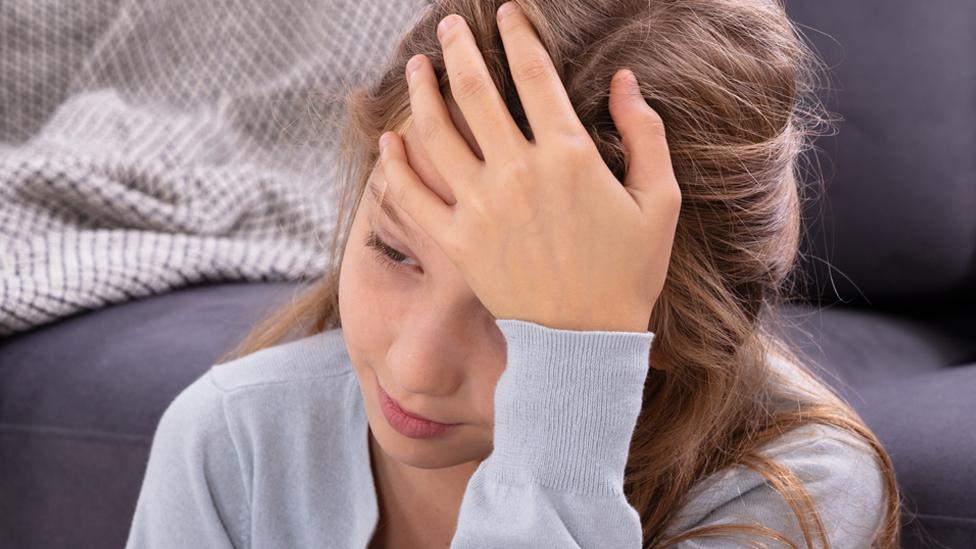
- Published2 April

- Published2 September 2021
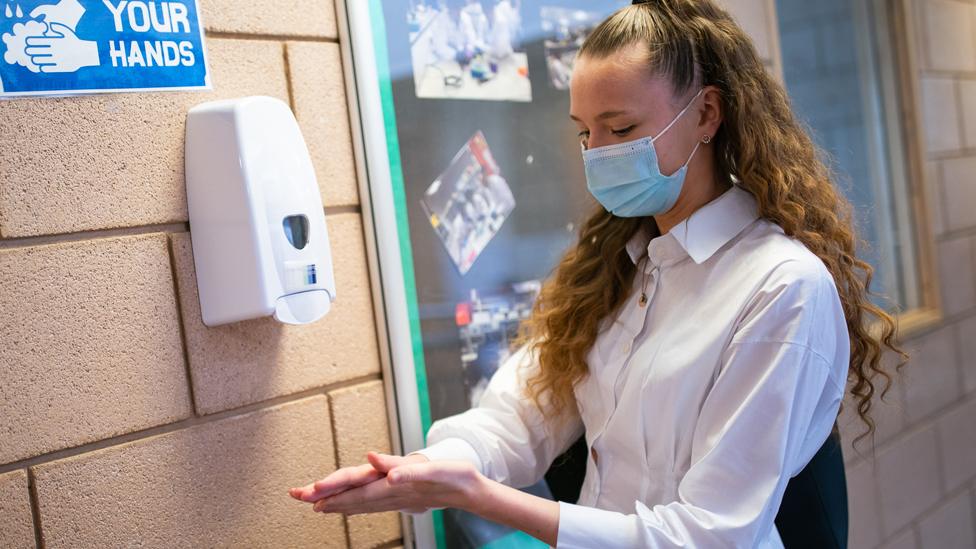
- Published9 July 2021
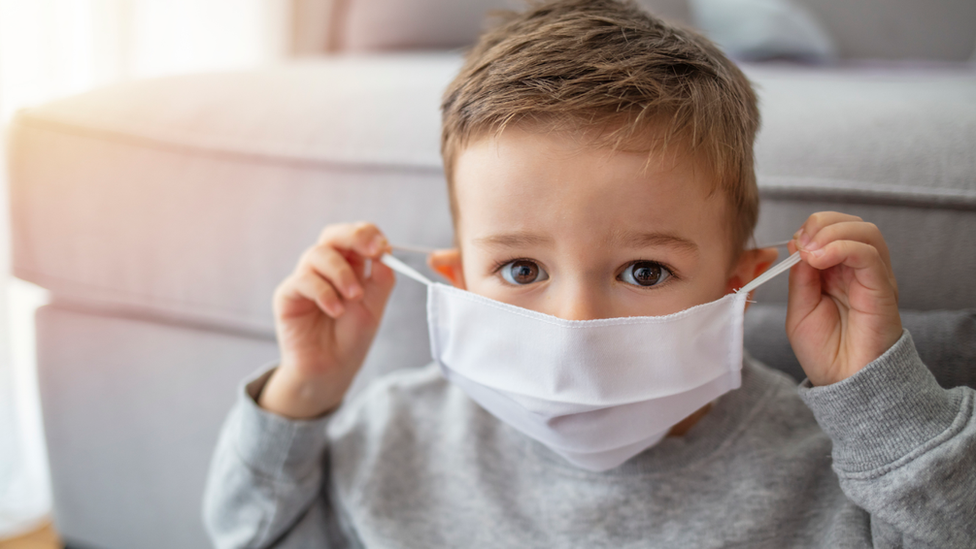
- Published1 June 2022
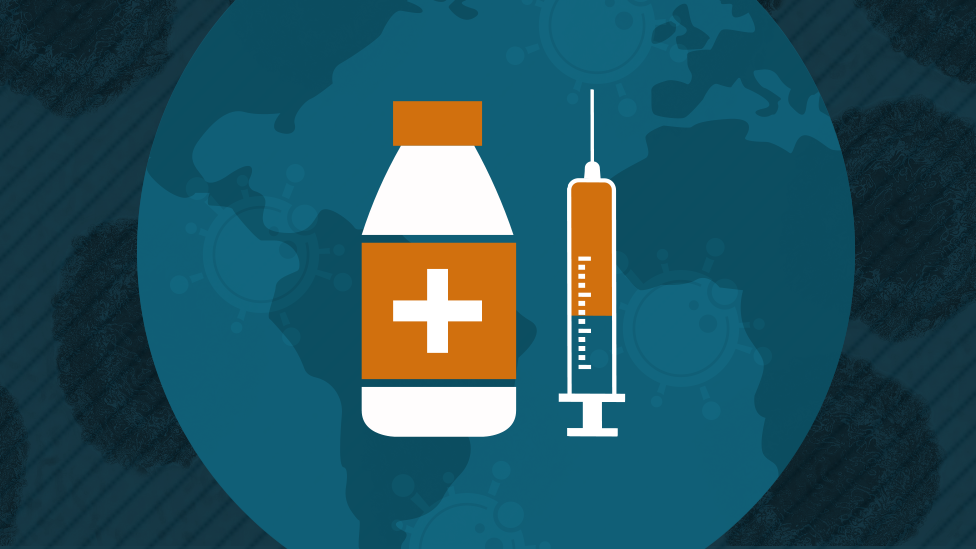
- Published4 June 2021
